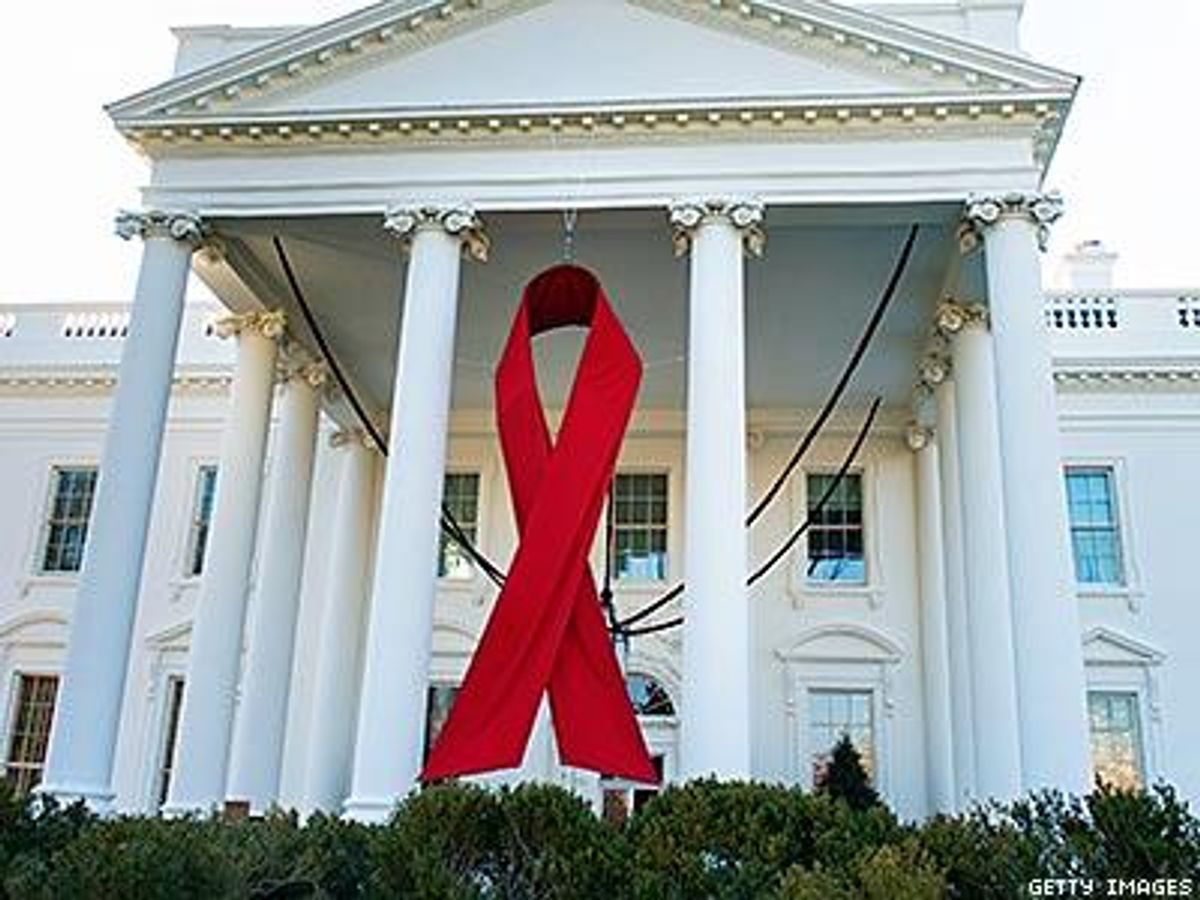
The Obama administration gave The Advocate and Plus a sneak peek at its proposal for battling HIV over the next five years.
July 29 2015 7:11 PM EST
May 26 2023 2:15 PM EST
Lifeafterdawn
By continuing to use our site, you agree to our Private Policy and Terms of Use.

The Obama administration gave The Advocate and Plus a sneak peek at its proposal for battling HIV over the next five years.
Administration officials are headed to Atlanta Thursday to take the wraps off the next stage of President Obama's 10-year plan to treat and prevent HIV in the United States.
Those officials provided details to The Advocate in advance of a video address the president will make to the Morehouse School of Medicine:
"Our work is far from finished," said the president in the recorded speech.
"One in eight people with HIV still go undiagnosed. Only three in 10 people with HIV have suppressed the virus in their system, lowering it to an undetectable level. And this disease still affects different ages, races, sexual orientations, and even different regions of the country in disproportionate ways.
"That's why this is the first administration to release a comprehensive strategy on HIV/AIDS, and that's why we are updating it for the rest of this decade. It seizes on the rapid shifts in science and policy as we've learned more about this disease."
The officials say on President Obama will sign an executive order Thursday releasing this update to the National HIV/AIDS Strategy, taking it through 2020.
The headline from Douglas M. Brooks, MSW, who is director of the Office of National AIDS Policy and will speak at Thursday morning's presentation, is that the level of HIV infection in the U.S. is "stable overall, but the risk to gay men remains severe. We still have an HIV epidemic, especially for young black men."
Right now, 1.2 million people in the U.S. are living with HIV, said Brooks, adding that a statistic to be cited by the president in the video -- that one in eight people who have HIV are undiagnosed -- is an improvement from 2010.
Still, for that and other reasons, HIV, said Brooks, "remains a major health crisis for the United States."
Brooks referred to the strategy of the next five years as a continuation of what the administration has already done, not just at a federal level but nationwide, with state, local and private organizations working with the administration toward these goals:
* A push for more widespread testing of HIV
* Expanded treatment across the Southern U.S. and major metropolitan areas
* Enabling people with HIV access to earlier testing
* Broad support for comprehensive treatment of HIV
* Universal viral-suppression among people living with HIV -- helping people attain better health reducing exposure and risk
* Full access to pre-exposure prophylaxis services.
As reported extensively in The Advocate, PrEP is a way for people who don't have HIV to prevent HIV infection by taking a pill every day.
Also in the video, the president said this next phase of his strategy focuses on "making sure that every American, no matter who you are, where you live, or how much money you've got, can get access to life-extending care."
Brooks said a common misconception persists among most Americans, not realizing "that you can live with HIV; it is no longer a death sentence."
But for certain groups, highlighted by Brooks, attention is a priority. They include gay, bisexual, and other men who have sex with men of all races and ethnicities, black women and men, Latinos and Latinas, people who inject drugs, people between the ages of 13 and 24, people living in the Southern United States, and transgender women.
Brooks noted the particularly high burden of HIV among black transgender women and black gay and bisexual men -- in the latter group, especially among young men.
The first five-year plan, begun in 2010, had four major goals:
* Reduce new HIV infection
* Improving access to care and improving outcomes for people living with HIV
* Reducing HIV-related health disparities and health inequities
* Achieving a more coordinated national response to HIV and AIDS
"Five years later, the efforts of the administration and of people working to implement the strategy have paid off," said Cecilia Munoz, assistant to the president and director of the White House Domestic Policy Council.
"We've seen significant progress in our work to address HIV broadly but we know we have a lot more work to do," Munoz said in a conference call Wednesday with The Advocate and other reporters in advance of Thursday's announcement.
So how much does all this cost? White House officials told The Advocate $24.1 billion was allocated in 2015 for domestic HIV prevention, care, and research. The budget for 2016 asks Congress to approve $25.3 billion.
Administration officials also provided reporters with details on how the Affordable Care Act, often called Obamacare, helps ensure that Americans living with HIV have better access to care and cannot be denied coverage because of preexisting conditions. That information is available online here.
For more details, click here for information from the White House on how the updated national strategy to combat HIV compares with the first five-year effort. And click here to watch the live stream on AIDS.gov from 10 A.M. to 4:30 P.M. EDT Thursday.
Want more breaking equality news & trending entertainment stories?
Check out our NEW 24/7 streaming service: the Advocate Channel!
Download the Advocate Channel App for your mobile phone and your favorite streaming device!